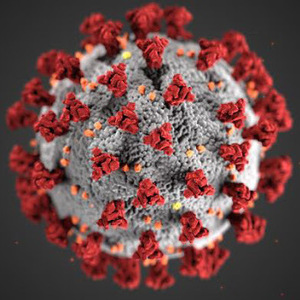Trump signs COVID-19 relief, tax extenders package

December 28, 2020
BY Erin Krueger
After a nearly week-long delay, President Trump on Dec. 27 signed a legislative package that includes tax extenders, $900 billion in COVID-19 relief, and government funding, averting a government shutdown and providing potential COVID-19 relief to biofuels producers. Congress passed the nearly 5,600-page bill on Dec. 21.
One component of the bill provides $11.2 billion in COVID-19 relief for agriculture. Language included in the legislation states that the USDA can use a portion of that funding to make payments to producers of advanced biofuel, biomass-based diesel, cellulosic biofuel, conventional biofuel, or renewable fuel that experienced market losses due to COVID-19. Although previous COVID-19 relief funding allowed similar discretion to aid biofuel producers, Agriculture Secretary Sonny Perdue has not allowed that to happen. Tom Vilsack, President-elect Joe Biden’s pick to fill the ag secretary post, is seen as more likely to provide aid to the hard-hit biofuels industry.
Advertisement
The legislative package also includes various tax credit extensions. The section 45 tax credit for renewable energy production from biomass, geothermal, landfill gas, municipal solid waste (MSW), certain hydro, marine and hydrokinetic facilities has been extended through 2021. The second generation biofuel producer credit and alterative fuel refueling property credit were also extended through 2021. In addition, the 45Q tax credit for carbon oxide sequestration has been extended for facilities that begin construction by the end of 2025.
Other components of the legislative package include an extension and benefit phaseout for pandemic unemployment assistance. Pandemic unemployment assistance is extended to March 14 and allows individuals receiving benefits as of March 14 to continue through April 5 as long as the individual has not reached the maximum number of weeks. The bill also increases the number of weeks of benefits an individual may claim from 30 to 50. In addition, the legislation restores the federal pandemic unemployment compensation supplement to all state and federal unemployment benefits at $300 per week, starting after Dec. 26 and ending March. 14.
The legislation also includes a second round of Paycheck Protection Program loans, with a maximum amount of $2 million, for smaller and harder-hit businesses. Eligible entities must have no more than 300 employees, have used or will use the full amount of their PPP, and must demonstrate at least a 25 percent reduction in gross receipts in the first, second or third quarter of 2020 relative to the same period of 2019.
Advertisement
In addition, the bill includes a second round of direct payments to individuals in the form of a refundable tax credit in the among of $600 per eligible family member. The credit phases out for individuals earning more than $75,000 or married couples earning more than $150,000.
Additional information, including a full copy of the bill, is available on the House Committee on Appropriations website.
Related Stories
NREL announced the findings of the Assessment of BQ-9000 Biodiesel Properties for 2024, the eighth in a series of annual reports documenting the quality of biodiesel from U.S. and Canadian producers participating in the BQ-9000 program.
Kintetsu World Express Inc. has entered into a new agreement with Shell Aviation regarding the use of SAF. Under this agreement, KWE will adopt Shell Aviation's digital platform "Avelia" to swiftly address shippers' low-carbon transportation needs.
Aemetis Inc. released Q2 results, reporting increase revenue when compared to Q1. During an earnings call, company officials detailed progress with the company’s RNG, ethanol, biodiesel, SAF and carbon CCS projects.
Calumet Inc. on Aug. 8 confirmed its Montana Renewables biorefinery is currently running at full capacity. An initial phase of the company’s MaxSAF initiative remains on track to boost SAF capacity to up to 150 MMgy by mid-2026.
Marathon Petroleum Corp. on Aug. 5 released second quarter financial results, reporting improved EBITDA for its renewable diesel segment. The company primarily attributed the improvement to increased utilization and higher margins.
Upcoming Events










